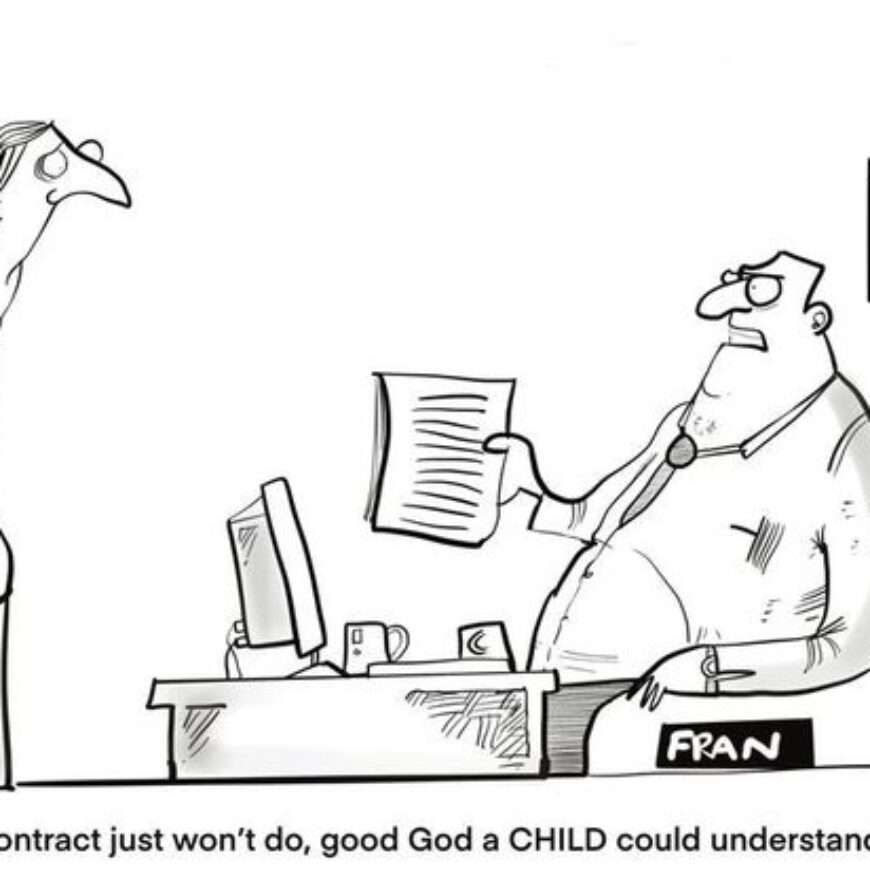by Tom Stilp JD, MBA/MM, LLM, MSC, DBA, June 24th, 2025
The basic elements of contract, offer by one party, and acceptance of the offer by the other party, which courts call the “meeting of the minds,” is disappearing. Professors Snyder and Mirabito write in the Indiana Law Review that most people do not read contracts (Snyder & Mirabito, 2019). In fact, less than 1/10th of 1% (0.001) of people who click “agree” even try to read the contract terms (Id.)
The law has made a mess of things with long-disclaimers and notices intended to protect consumers but instead do just the opposite. As recent examples, we’ve read leases to rent apartments in Chicago and New York City that are over 60 pages long.
These Frankenstein contracts include terms about terrorism, barricades, noise, bed-bugs, smoking, housekeeping, utilities and other terms, all of which require separately signed pages showing that the tenant, who never actually read these terms, has both received notice and agreed unconditionally.
Professor Linzer writes contracts have become evil, used for bad ends and allow a distribution of power favoring shrewd businesses to force agreement (which is to say no real agreement) and capitalize on the romantic notion of freedom of contract (Linzer, 2015).
What we are left with today are contracts that are not read (too long and too complicated), only agreed to symbolically (using a click of a button), with terms that cannot be changed, and used for evil ends, leaving one party only with the option to walk away.
It gets worse. We now have “unilateral, post-contractual modifications,” meaning that one party may change the terms of an agreement after that agreement has been signed. In a real example, we received a notice stating the following:
“Terms and Conditions of Your Business Account . . . We may change our bylaws and this Agreement at our sole discretion, and at any time by adding new terms, deleting, or amending existing terms, or making any other changes . . . For such changes, we will usually give you reasonable notice . . . however, we may also on occasion make changes to this Agreement without notice . . . “
(Everwise Credit Union, South Bend, Indiana, 2025). The notice states changes will ultimately depend on the law, but the law itself does not have all the answers to these new problems. Instead, a better option is to rely on experienced counsel. We have helped clients terminate unfavorable contracts when there have been threats of unilateral changes by the other side and when consent was only symbolic.
References
Linzer, P. (2015). Contract as evil. Hastings Law Journal, 66, 971- 1010.
Snyder, F. and Mirabito, A. (2019). Boilerplate: What consumers actually think about it. Indiana Law Review, 52, 431- 453.



